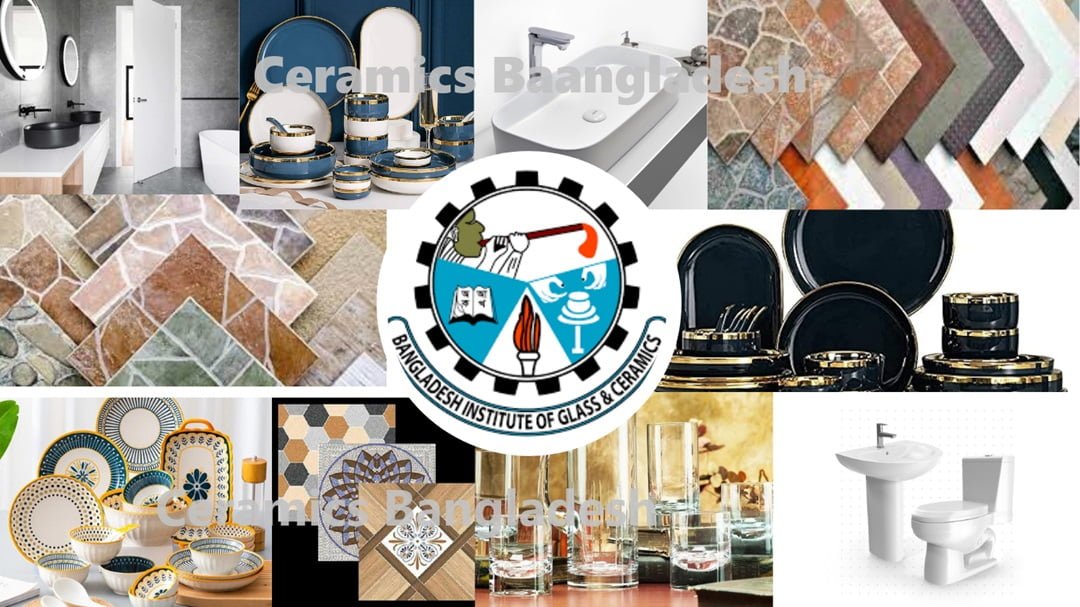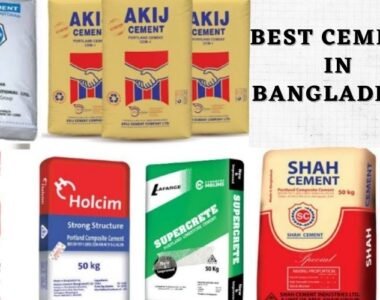
Bangladesh Institute of Glass and Ceramics A Pillar of Ceramic and Glass Education
The Bangladesh Institute of Glass and Ceramics (BIGC) stand tall as a beacon of technical education in Bangladesh. Established in 1951, it holds the distinction of being the oldest and the only institute solely dedicated to the field of glass and ceramics in the country. This institute has played a pivotal role in shaping the nation’s glass and ceramics industry by nurturing skilled professionals for over seven decades.
From East Bengal Ceramics Institute to BIGC
BIGC’s roots trace back to March 11th, 1951, when it was initially christened the East Bengal Ceramics Institute. This marked a crucial step in nurturing skilled professionals for the burgeoning ceramics industry. In 1960, the institute’s name was changed to East Pakistan Institute of Glass and Ceramics (EPIGC) to reflect the political landscape of the time. However, with Bangladesh’s liberation in 1971, the institute adopted its current moniker, Bangladesh Institute of Glass and Ceramics, in 1972, symbolizing a new era and national identity.
Throughout its journey, BIGC has adapted to the evolving needs of the glass and ceramics sector. Initially, the institute offered a three-year Diploma in Ceramic Engineering. Recognizing the growing demand for qualified professionals, a four-year Diploma in Glass Engineering was introduced in 2000. This expansion in course offerings reflects BIGC’s commitment to staying abreast of industry developments.
Academic Excellence
BIGC’s core mission lies in imparting high-quality technical education and training in the fields of glass and ceramics engineering. The institute’s curriculum is meticulously designed to equip students with the theoretical knowledge and practical skills necessary to excel in this dynamic field.
The institute boasts well-equipped laboratories that provide students with hands-on experience in various aspects of glass and ceramic production. Students gain practical knowledge in areas like raw material processing, glass melting, ceramic forming techniques, firing, glazing, and product testing. This blend of theoretical and practical learning prepares graduates for immediate industry integration.
BIGC’s faculty comprises highly qualified and experienced professionals with a deep understanding of the glass and ceramics industry. Their dedication to teaching and mentorship ensures that students receive a well-rounded education, fostering a spirit of innovation and problem-solving.
Academic Programs and Curriculum
BIGC’s core focus lies in offering technical education programs in the fields of glass and ceramics engineering. The institute’s curriculum is designed to equip students with the theoretical knowledge and practical skills necessary to excel in this dynamic industry.
- Diploma Programs: Initially, BIGC offered a three-year diploma program in Ceramic Engineering. Recognizing the growing demand for skilled professionals, a Diploma in Glass Engineering was introduced in 2000. Both programs have since been extended to four years, providing a more comprehensive learning experience.
- Course Structure: The curriculum incorporates a blend of classroom lectures, laboratory sessions, workshops, and industrial internships. Students delve into subjects like raw material processing, glass and ceramic technology, product design and development, quality control, furnace operation, and industrial management. The practical aspects are emphasized through hands-on training in well-equipped laboratories, allowing students to gain practical experience with industry-standard equipment and processes.
Beyond Academics Innovation
BIGC recognizes the importance of fostering a culture of innovation within its walls. The institute actively encourages research and development activities, providing students and faculty with opportunities to explore new frontiers in glass and ceramics technology.
- Research Facilities: BIGC boasts dedicated research laboratories equipped with advanced instruments for material characterization, product development, and process optimization. These facilities enable researchers to explore novel glass and ceramic compositions, investigate innovative manufacturing techniques, and develop products with enhanced properties.
- Faculty Expertise: The institute’s faculty members are not only accomplished educators but also active researchers engaged in cutting-edge projects. Their expertise plays a crucial role in guiding student research endeavors and fostering a spirit of scientific inquiry within the institute.
- Workshops and Seminars: BIGC regularly organizes workshops, seminars, and conferences, inviting industry experts to share their knowledge and insights with students and industry professionals. These events serve as a platform for knowledge exchange, fostering continuous learning and development within the sector.
Contribution to Industry
BIGC’s graduates are highly sought after by the glass and ceramics industry in Bangladesh and beyond. The institute’s reputation for excellence ensures that its alumni possess the necessary skills and knowledge to make significant contributions in various sectors, including:
- Glassware Production: From manufacturing everyday utensils to high-end decorative items, BIGC graduates play a vital role in the country’s glassware industry.
- Ceramics Industry: The ceramic industry in Bangladesh encompasses a wide range of products, from bricks and tiles to sanitary ware and tableware. BIGC graduates contribute significantly to product development, quality control, and production processes within this sector.
- Emerging Fields: With advancements in technology, the use of glass and ceramics is expanding into new frontiers. BIGC graduates are finding opportunities in areas such as advanced ceramics for electronics applications and Bio Ceramics for medical implants.
Future of BIGC
As the glass and ceramics industry in Bangladesh continues to evolve, BIGC is committed to staying at the forefront of technical education. The institute is constantly exploring ways to adapt its curriculum and incorporate new technologies to ensure its graduates remain competitive in the global marketplace.
- Focus on Sustainability: There is a growing emphasis on sustainable practices within the glass and ceramics industry. BIGC is actively integrating green technologies into its curriculum, equipping students with the knowledge and skills to develop eco-friendly products and processes.
- International Collaboration: Recognizing the importance of international exposure, BIGC is forging collaborations with research institutions and universities around the world. These partnerships facilitate the exchange of knowledge and expertise, leading to advancements in research and development activities.
These collaborative efforts create a win-win situation for both BIGC and the glass and ceramics industry. Students gain valuable exposure to real-world practices, while industry benefits from a pool of well-trained and industry-ready graduates. Additionally, research collaborations lead to advancements in technology and product development, propelling the industry forward.
Bangladesh strives towards economic development, the role of the glass and ceramics industry becomes increasingly significant. BIGC, with its legacy of excellence and commitment to innovation, is well-positioned to play a vital role in this journey. By continuously upgrading its curriculum, fostering industry partnerships, and promoting cutting-edge research, BIGC will continue to equip future generations with the expertise needed to propel the country’s glass and ceramics industry to new heights.
Conclusion
The Bangladesh Institute of Glass and Ceramics stands as a testament to the nation’s commitment to industrial development and technological advancement. For over seven decades, BIGC has nurtured generations of skilled professionals who have played a pivotal role in shaping the country’s glass and ceramics industry. As the institute continues to adapt and innovate, it is well-positioned to lead Bangladesh towards a future of excellence.


